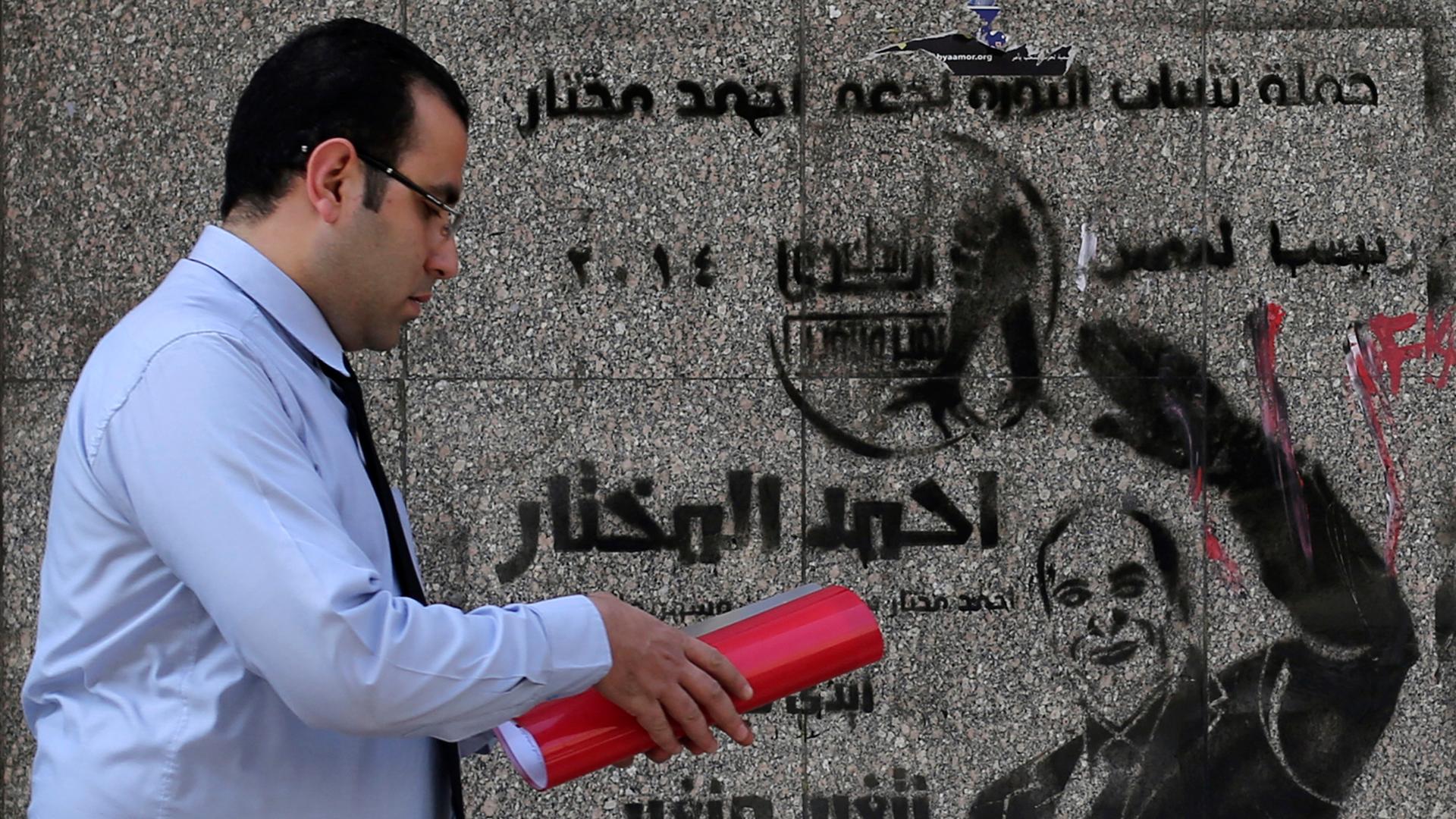Will Egypt’s new, New government return to the old ways?
A man walks past a wall graffiti regarding the 2014 presidential election in downtown Cairo, February 25, 2014. The graffiti reads: “Ahmed Al Mukhtar – President of Egypt, Your hand with my hand, we can change our country.”
Ibrahim Mehleb, a political ally of former President Hosni Mubarak, has been chosen as Egypt's new prime minister after a surprise resignation of now former prime minister, Hazem el-Beblawi, and his cabinet Monday.
El-Beblawi had only been prime minister for only seven months but had been criticized for his inability to resolve the country's economic troubles and failing to prevent terror attacks.
Mehleb led one of Egypt's largest construction companies and was an official in Mubarak's National Democratic Party. Mubarak was ousted in a 2011 political uprising that led to the election of Mohammed Morsi, of the Muslim Brotherhood, as president.
Many Egyptians are critical that promises of a more democratic political landscape have not materialized as protesters had hoped.
Many see the Mehleb announcement as just "rearranging the chairs on the deck of the Titanic," according toBorzou Daragahi, Middle East and North Africa correspondent for the Financial Times.
A new presidential election is expected this spring and there's been speculation that the mass resignations is just a chance to clear the way for Egypt's military chief, Field Marshal Abdel Fattah al-Sisi to run for president.
"Coincidentally just preceding this cabinet change, the real power in Egypt, Field Marshal Abdel Fattah al-Sisi, was heading to Russia and cozying up with Putin," said Daragahi. "So this just gives you an idea of where the government is headed."
Daraghi recalled a photo of children protesting against the Islamist government, in support of the military. And they had taped military boots to their heads as a sign of subservience to the armed forces.
"That really struck me as emblematic of the spirit conformity that is prevalent among many Egyptians that worship of the military and the kind of submission of the self under the jackboot of the armed forces and their prevailing ideology," he said.
Daraghi suggests that anything and anyone that promises law and order is going to be accepted by the bulk of Egyptians, whom are craving some stability and a resumption of the economy.
"The problem is that the formula for stability that the Egyptian authority is presenting right now is the same formula that Mubarak used with such disastrous results: a strong hand of the security forces, imprisoning people who don't agree with you. This is the kind of action that fueled the instability that led to the 2011 uprising and indeed to all of the Arab Spring uprisings," said Daraghi.
Every day, reporters and producers at The World are hard at work bringing you human-centered news from across the globe. But we can’t do it without you. We need your support to ensure we can continue this work for another year.
Make a gift today, and you’ll help us unlock a matching gift of $67,000!
